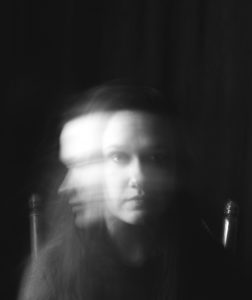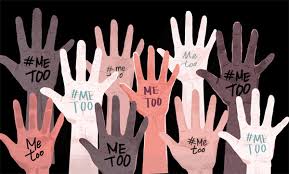Category Archives: blogging
Commitment
The dictionary defines commitment as “the state or quality of being dedicated to a cause, activity, etc.”
Through the course of my life, I’ve had trouble committing to things and sticking with losing weight, exercising, writing a book and a host of other things.

Which is why I was petrified when I got married again and became pregnant at 37. Once I crossed over the threshold into motherhood, I signed on to the scariest and biggest commitment of my life. I knew things would change and I was right because it’s been sixteen years now since my free spirit took a back seat.
I would be lying if I told you it’s been easy or that there haven’t been days I wanted to quit. Marriage is hard, parenting is even harder, but raising children with special needs is beyond difficult. Yet and still, I couldn’t imagine life without them. My love supersedes everything and compels me to keep going.
That’s not to say, I don’t miss the years I’ve flitted around like a hummingbird. But I’ve realized that commitment was exactly what I needed most because it forced me to grow up. I’ve since learned that avoiding commitment or responsibility only keeps us stuck, stagnant and stunts our growth and maturity in life and relationships. So I’d rather wrestle with the struggles and hardships that comes with commitment rather than avoid it and miss out on the opportunity to grow and mature in Christ.
“Let us not be weary in well doing: for in due season we shall reap, if we faint not.” Galatians 6:9
Redeeming Lost Time
I was speaking with my therapist last week about choices. I was explaining why certain things didn’t happen in my life and what occurred and why it lead me to where I am today. There was a significant amount of loss.

The topic came up because I was rehashing what happened in my writing group. I had submitted a piece I had worked on for critique. What usually occurs is everyone gets a turn telling you what they liked or disliked or what worked or didn’t work for them. I struggle with getting critiques because I’ve been criticized for most of my life.
My therapist explained my writing isn’t me. Meaning, they are not critiquing me as a person, they are only critiquing my writing. But I responded that my writing is me.
It’s the same thing when I cook. I like to cook and feed people. When I cook, I cook from my heart. It’s an act of giving. My cooking is an expression of who I am. So, if someone doesn’t like my cooking, I take it personally. Just like I do with my writing.
I gave my therapist a time table of every creative endeavor I’ve pursued since I was a teenager. I had the same issue with each of them. First, it was acting, then fashion design, then singing, and then writing. In that sequence.
I get the fact that we need critiques to improve and grow. However, I can’t help it if I struggle to the point of giving up. I’ve repeated the same pattern throughout the course of my life. I’m tired of this cycle and getting nowhere.
Here I am at 53, and in the same position that I was in my 20’s. It’s kind of sad actually. The Lord gave me creative abilities for a reason and I’ve allowed fear and people’s words to stop me.
My therapist is astute and asked me one simple question. “Are you trying to play catch up and make up for lost time?” I sat there and thought about it, and realized the answer is yes. Now I understand where all this pressure is coming from. I’ve made so many mistakes in the past that now I’m afraid to fail.
I have to remind myself that I wasn’t meant to be perfect in the first place. I can and will make mistakes in my life and writing. I can give myself permission to write crappy, make mistakes, and even fail. Failing isn’t the worst thing that can happen to me or you because that’s when we learn the most and can become better.
This quote by Anne Rice resonated with me this week, “To write something you have to risk making a fool of yourself.” So true.
We have to risk making a fool of ourselves. We are ever evolving as people and as writers. There is always something new to learn. We won’t stop learning and growing until we die. That’s if we allow ourselves and don’t give up.
I don’t know about you, but I’m tired of fear and people kicking me in the butt. The past is the past. This is the present. I don’t have to play catch up and try to redeem lost time. I can start from where I’m at and give myself permission to learn, grow, make mistakes and even fail. I hope you will do the same.
God’s Hourglass
“But God said unto him, Thou fool, this night thy soul shall be required of thee: then whose shall those things be, which thou hast provided?” Luke 12:20
“But of that day and hour knoweth no man, no, not the angels of heaven, but my Father only.” Matthew 24:36
“Whereas ye know not what shall be on the morrow. For what is your life? It is even a vapour, that appeareth for a little time, and then vanisheth away.” James 4:14

Photo by Adrien King on Unsplash
The other day I was perusing the news and came across a tragic story of a young man who was coming out of an elevator in a luxury building in NYC and was suddenly crushed to death.
I’m sure that young man didn’t think he would die that day. It was an unexpected freak accident.
Sometimes we forget we’re not immortal or promised tomorrow. We are all subject to God’s eternal hourglass. When the sand runs out, that’s it. Our time is up.
This is why each day is a gift.
Unfortunately, sometimes we take our life for granted or we complain about our lives. But we never know what the next minute, hour or day will bring.
Even with all the problems and issues we contend with on a daily basis, there’s still much to give God thanks for.
I came across a verse that I’ve read several times, but for some reason this time, it stood out. It’s Romans 1:21.
“ Because that, when they knew God, they glorified him not as God, neither were thankful; but became vain in their imaginations, and their foolish heart was darkened.”
The “neither were thankful” part jumped out at me.
Even in the midst of our suffering, there’s still something we can give God thanks for.
Life is precious and short. We are here today and gone tomorrow. God is who gives us breath and life. He blesses us with each day.
Yes, we can find a multitude of things to complain about. However, God is still worthy of our thanksgiving, praise and worship despite the suffering, hardship and difficulties we face in this life.
When we don’t give the Lord thanks, we are basically not acknowledging Him.
Are you giving thanks to God? If not, it’s never too late today.
The Mentally Ill Christian
It’s hard to have mental illness, but it’s even harder for a Christian.
Most days, it feels like you’re drowning. Drowning in isolation, fears, and worries that shoot at you like a barrage of stray bullets.
If only it would stop. If only there was peace.

Photo by Davide Pietralunga on Unsplash
Unfortunately, most don’t understand what it’s like, not even the Church. Where acceptance, understanding, and tolerance should exist, but doesn’t.
They treat you like they are flicking a piece of lint off of their lapel. There’s no understanding, support and even compassion for those suffering and their families. They’re only willing to offer you cheap platitudes as a way to assuage their conscience.
Many sufferers are forced into silence due to the stigma, lack of acceptance and intolerance.
The pain of being misunderstood and rejected gets tucked away like tidy towels in a linen closet.
But, nothing can erase the guilt and shame of a broken brain.
Christian’s suffering from mental illness have mastered the art of pretending. They’ve had to become world class actors to survive because most people–inside and out of the Church–simply can’t handle the truth.
What is the solution? Optimally, it would be for Churches to get on board and educate the congregation on mental illness to eradicate the stigma.
The more education and awareness, the less stigma will exist in and outside the Church.
People shouldn’t have to feel alone, misunderstood, isolated, rejected and marginalized in the Church. The Church should be a place of refuge and a catalyst for change to bring hope and healing for families.
What Mental Illness Should Not Be
I hear terms like, “the weather is so bi-polar,” or “I’m just a little OCD,” and I cringe. When people say things like this, they have no idea what they are saying.

Photo by Callie Gibson on Unsplash
Terms like these are used loosely all the time. For the record, there is no such thing as being a little OCD.
Just because you are clean and meticulous doesn’t mean you suffer from OCD. OCD is a serious mental illness and those who have it suffer a lot and it’s no laughing matter.
Being clean and organized has nothing to do with the fastidiousness of washing your hands countless times a day to the point of bleeding. Those who suffer from OCD will tell you unabashedly, it’s like living a reoccurring nightmare.
OCD is a debilitating disease that never goes away. And, as with most mental illnesses, there is no cure.
Sometimes people associate all mental illnesses with psychosis which is a separate diagnosis. Here is a short clip of what psychosis is like: https://www.bbc.co.uk/programmes/p0783qvh.
Society dumps everything in one batch. When they think bi-polar or schizophrenia, they automatically associate it with being “crazy or like I mentioned in my previous post, “Psycho.” But, nothing could be further from the truth.
Mental illness is the result of a brain disorder that affects your mood, thinking and behavior.
For example, with OCD, there’s a barrage of uncontrollable, reoccurring thoughts (obsessions) and behaviors (compulsions) that he or she feels the urge to repeat over and over. They can’t stop it or snap out of it either.
According to the National Institute for Mental Health, bi-polar disorder, also known as manic-depressive illness, is a brain disorder that causes unusual shifts in mood, energy, activity levels, and the ability to carry out day-to-day tasks.
Bottomline, mental illness (i.e., OCD, bi-polar, schizophrenia) should not be the butt of jokes, the brunt of mockery, or made light of nor misinterpreted, misrepresented or stigmatized. Because mental illness is not fun or funny. Those suffering from it live in constant torment and daily torture and they hide in shame and suffer in silence due to all the ignorance floating around.
Which is why I’m speaking up to help end the stigma on #MentalHealthAwarenessMonth.
I’m Coming Out. My Confession.
As a child, I remember thinking differently than my peers. I felt like an outsider. Like I was on the peripheral looking in at life happening around me. Sort of like watching a movie.

Photo by Ian Espinosa on Unsplash
By the time I reached junior high school, it worsened. I had confided in a school friend who would listen to me for hours while I lamented as tears ran down my face like a faucet.
I somehow had the wherewithal at fourteen to find a therapist which I paid for with my allowance I had earned by ironing my father’s shirts. She had diagnosed me with dysthymia (persistent mild depression). I saw her weekly until she fell asleep in one of our sessions.
In my late teens, I remember things becoming more pronounced. One day I would wake up full of energy and be ready to take on the world, and the next, I would feel utterly hopeless and depressed. There was no explanation for these extreme shifts in mood.
The fluctuating moods were accompanied by my loyal companions; fear, dread, worry and guilt. I didn’t know at the time I was struggling with anxiety until I had experienced my first panic attack in my late twenties.
By that time, I had become impulsive and spontaneous. I would feel a surge of energy pulsate through my body like electricity which made me feel invincible. There was so much I wanted to do and accomplish that I wouldn’t sleep.
I took unnecessary risks and made bad decisions that if it wasn’t for the grace of God, I’m sure things would have ended badly.
I was enthusiastic, adventurous and lived for the thrill of excitement. Everything I did was over the top, exaggerated and extreme. I flirted with danger because I was addicted to the adrenaline rush and loved the exhilarating feeling it gave me.
In this state, everything seemed alive and vibrant. Life was good.
Until it wasn’t…
It was only a matter of time until the dreaded crash came. I went from being high to drowning in a sea of hopelessness and sinking into a quicksand of despair. Everything around me became devoid of color; a still life black and white photo; grey, lifeless and dull.
The rollercoaster high’s and low’s kept happening, combined with an ever present restlessness and gnawing irritation, like stew simmering in a crockpot or a rumbling car motor that never seems to shut off or a dormant volcano brewing beneath the earth’s surface.
I lived like this for years not knowing why.
Fifteen years ago, things came to a head after giving birth to my eldest son. I had suffered from postpartum depression. My son was colic and would cry all night. I wasn’t getting any sleep and worked a stressful job. Between the lack of sleep and stress, I began to spiral. It was then that a therapist suggested I get evaluated by a psychiatrist.
After an hour and a half hour of what felt like an interrogation, I received the verdict. Her words shot out like fists punching my face.
I didn’t believe her, so I went for a second opinion and was given the same diagnosis.
********
After years of hiding behind the shame and living in silence, I decided to come out.
I’m a Christian who suffers with chronic pain and physical and mental illness. And I am not alone. There’s plenty of people out there struggling like me, who lurk in the shadows because of shame and fear of being found out.
They vacillate between denying their illness, pretending away their illness or praying away their illness, thus refusing treatment they so desperately need.
Instead, they self-medicate by either drinking, drugging, eating, spending or sexing.
*******
I’m speaking specifically to Christians right now, if you are struggling with mental illness, don’t allow the church or anyone from church tell you mental illness is a spiritual problem because it isn’t. Please don’t listen to anyone who tells you, you lack faith or you must have unconfessed sin or that you aren’t praying or fasting enough.
Mental illness is not a spiritual condition, but a medical one that needs to be treated like diabetes or cancer.
Please contact your local National Alliance for Mental Illness (NAMI) and get support. You don’t need to suffer in silence or struggle alone.
*******
Silence is the result of stigma and judgment by family members, friends, co-workers, church members, and society in general who aren’t educated and misunderstand, misinterpret, and marginalize those who suffer from mental illness or any invisible illness.
*******
Truthfully, these past two years have been the most difficult for me. My life has completely changed and it’s been hard for me to reconcile and adjust to. Believe it or not, it’s taken me over 15 years to finally accept my diagnoses.
I didn’t want to come out because most people walking around react to words like bi-polar, OCD or schizophrenia as a joke or they associate it with characters from “Psycho,” “One Flew Over the Cuckoo’s Nest,” or “A Clockwork Orange.”
This is why I’ve kept it hidden for so long, but now I no longer want to because there’s too many people suffering in silence. For this reason, I chose to come out and join the tribe of other voices advocating and fighting against the stigma.
Critique versus Criticism
One of the things that happens as a writer is you are subject to other people’s comments and opinions. Those opinions can either be positive or negative, constructive or destructive.
If you want to be a writer, there is no way around the critique process if you want to grow and improve.
However, I’ve discovered there is a significant difference between critique and criticism.

Courtesy of Creative Commons ~ NiKol
The Difference between Critique and Criticism*
- Criticism finds fault/Critique looks at structure
- Criticism looks for what’s lacking/Critique finds what’s working
- Criticism condemns what it doesn’t understand/Critique asks for clarification
- Criticism is spoken with a cruel wit and sarcastic tongue/Critique’s voice is kind, honest, and objective
- Criticism is negative/Critique is positive (even about what isn’t working)
- Criticism is vague and general/Critique is concrete and specific
- Criticism has no sense of humor/Critique insists on laughter, too
- Criticism looks for flaws in the writer as well as the writing/Critique addresses only what is on the page
I have experienced both. Thankfully, the critiques I have received thus far have been helpful whereas criticism has had the opposite effect.
Critiquing is positive and constructive while criticizing is negative and counterproductive. We must be thoughtful in our approach in critiquing others. We must be mindful of the spirit behind what we say as well as how we say it.
We all have opinions. We all have our likes and dislikes. However, we must be responsible as writers when we are critiquing people’s work. We must be able to step back and read the work from an objective standpoint.
We also have to keep in mind there are ways to communicate and get our points across without being curt, mean or snarky.
I cringe when I think of novice writers who possess talent and have potential but give up because of receiving a nasty critique. It shouldn’t happen.
The whole purpose of critiquing is to help the writer along in developing their story, not to tear it down or criticize it.
Critiquing is a skill that every writer should be required to learn how to do properly and effectively.
*Taken from Writing Alone, Writing Together; A Guide for Writers and Writing Groups by Judy Reeves
A Slow Death
As I gazed at the landscape that was once plush green, thoughts ricocheted like bullets in my mind.
I wondered how leaves changed from being green to brown, orange, red and yellow.
They change and transform by a slow death.

Courtesy of Creative Commons
The result is from the breakdown of chlorophyll, due to the changes in the length of daylight and temperature. The leaves stop their food-making process. The chlorophyll breaks down, the green color disappears, and the yellow to orange colors become visible and give the leaves part of their splendor.
God is the master artist weaving a beautiful tapestry in nature with the ebb and flow of leaves, seasons, tides, births and deaths.
Watching the leaves turn reminds me of God’s power and my fragility, His strength and my weakness, His immortality and my mortality.
In reality, we are all fallen leaves, dying a slow death.
“For what is your life? It is even a vapor that appeareth for a little time, and then vanisheth away.” James 4:17
Blind Spots
One of the biggest challenges for Christians is the ability to see themselves. It reminds me of the blind spots while driving.

Blind Spot by Nimish Gogri | Creative Commons
Blind spots are areas of the road (or vehicles) that cannot be seen while looking forward or through either the rear-view or side mirrors.
What do I mean by blind spots in our Christian walks?
Here are some examples:
Example 1: A father who has been a Christian for many years, graduated Bible school, did missionary work and is a worship leader. He is known to drop everything to do “ministry.” Yet, when his son was down and out, lost his license and vehicle due to a DWI and needed a ride to work, his father told him that he couldn’t give him a ride because it was too much for him.
Example 2: A woman receives a negative health diagnosis and is waiting to have a procedure done. She is alone and anxious. She decides to text a sister in Christ and ask for prayer. She never responds. The following day she texts her again to ask if she had received her text. She responds by saying yes, but that she didn’t have anything to say.
Example 3: A son gets kicked out from where he was living. For all practical purposes, he is homeless. He reaches out to his father and asks if he could stay with him temporarily until he can get himself together. His father says, No.
All three people are believers, who are either doing ministry or serving the Lord. However, when the rubber meets the curve (I’m trying not to use cliches, lol), their words and actions are incongruent. There is a disconnect.
This is what I refer to as blind spots and what others call hypocrisy.
Blind spots are deceptive, dangerous, and destructive. We all need to face the truth about our blind spots. They need to be dealt with, and not ignored, denied, justified, deflected and excused.
How do we face our blind spots?
- By accepting that we have them.
- By praying, repenting and asking God for awareness, assistance and forgiveness.
- By reading and studying the Bible daily, which helps in examining (2 Corinthians 13:5), and judging ourselves. (1 Corinthians 11:31).
Thank the Lord for your truth, love, forgiveness, mercy and grace.
“Amazing Grace, How sweet the sound
That saved a wretch like me
I once was lost, but now am found
T’was blind but now I see”
#MeToo
I wasn’t going to write this, I really wasn’t. But, the thoughts kept nagging at me, to the point that I couldn’t sleep. My writing friend and mentor Andi says that when this happens you must write the story that gnaws to be told.
This is going to be difficult for me to write for various reasons. Mostly, because my story will not coincide with many in the #MeToo movement.

The purpose of a writer is to tell the truth and that’s what I am going to attempt to do. For better or for worse.
Around this time in 1983, I was raped by my boyfriend. I was 16 going on 17. I remember it like if it happened yesterday. It changed the trajectory of my life. I was never the same. A part of me died. I fell into a deep depression, was suicidal and started to drink a lot to cope with feelings I didn’t understand.
I was naive as I didn’t even know that what had happened to me at 16 was rape until 10 years later while I was in therapy.
Now that I have told the whole world (I’m exaggerating), I feel so much better now (I’m joking). Actually, telling you or the whole world will not make an ounce of difference nor will it ever change what happened to me.
I am not minimizing any woman’s experience and their needing to come out and speak up about their violation.
There have been several stories I have followed: Dr. Larry Nassar, Bill Cosby, Harry Weinstein, Corey Feldman, and Kevin Spacey.
I was especially touched by Rachael Denhollander’s moving statement.
However, I’m not Rachael or any of these Hollywood celebrities coming out in protest against something that unfortunately happens all the time, especially in high school. Again, I am not minimizing or dismissing their or my experience. I am just stating a fact.
There are various reasons for rape which doesn’t make any of it right, but it does happen. Young boys who are under the influence and go too far. They don’t exhibit the proper self-control. I’m not saying every incident of rape is like this. But, a boy’s raging hormones mixed with alcohol is a dangerous combination. Young boys already struggle with self-control and if there is no male figure in their life to teach them, well, a whole bunch of stupid things can happen at that age, which includes rape.
My coming out and speaking the truth about my experience does nothing to change it. The two men who raped me (yes, unfortunately there was a second time by another “boyfriend”) are six feet under. I can’t go back and undo what happened to me. Even if they were alive and I was able to press charges against them (which I didn’t and wouldn’t), punishing them wouldn’t do anything to change what happened and the damage it caused.
In my case, it doesn’t matter. I am a nobody. I have no influence. I am no one of importance in the big scheme of things. My #MeToo story doesn’t matter and won’t change a single thing.
My point is who cares if I was raped. What difference is it going to make if I told my story? How is my experience actually going to revolutionize some else’s life?
However, for people like Rachael and others, it does matter. Especially given their abusers are serial rapists. Unfortunately, sexual predators will continue to victimize and sexually abuse until they are caught and stopped. It’s an illness. Nowadays, they define help as prison time, which I don’t wholly agree with. But, that’s different topic for another day.
I don’t mean to come across as cold or callous. I have been in rooms with others who were sexually abused much worse than I ever was which made my experiences look petty and insignificant. We all talked and cried until we were blue in the face, and it did nothing to change what happened to us.
Yes, rape is wrong. No one should ever be sexually violated. Yes, it was bad. We were young and innocent. However, there comes a point where we can’t focus or linger on what happened to us.
The pain of our pasts can only be healed by the One who created us, and it comes through forgiveness.
This is why I admire and respect Rachael Denhollander. She did not come across as angry, vengeful and with something to prove. She was peaceful, you could see it in her demeanor and countenance. The peace she possesses comes from her faith in Jesus Christ. She forgave Dr. Larry Nassar. That’s huge.
My healing did not come by fighting or speaking up about my experience or lashing out at men because I was raped. There was a time when I was angry. However, my anger didn’t dissipate by talking about my experience, it came by drawing close to Jesus and through forgiveness. Forgiving them and myself.
I am sure many reading this will think I sound trite and religious. After many years of suffering and not getting answers no matter how many rooms I sat in or how many hours of therapy I had or how many journals I’ve filled, I realized the answer to my pain and suffering was surrender and forgiveness.
The complete opposite of what this world will tell you. This world’s philosophy is to fight back, and shake our fists at whomever goes against what we think or believe.
There are times when justice needs to be served, and God will allow it. Not always though. When all is said and done, as believers, earth is not our home. The ultimate justice will be served when we stand before Jesus Christ and give an account for everything we have said and done.
